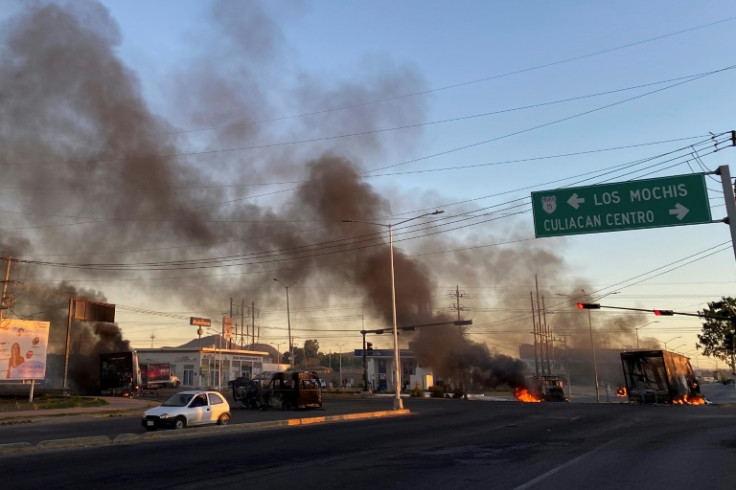
Over 30 people have been killed in Sinaloa last week alone as turf wars between factions of the eponymous cartel escalate following the capture of Ismael "El Mayo" Zambada in late July.
The Sinaloa state prosecutor said on Sunday that 11 more people were killed, including five men whose bodies were found on a highway south of Culiacán, the state capital. It is unclear what percentage of the total deaths are directly linked to cartel tensions.
A faction controlled by the sons of Joaquín "El Chapo" Guzmán has been fighting with that loyal to Zambada and controlled by one of his sons, known as the "Mayiza." Schools were closed on Thursday and Friday due to the violence, and Independence Day festivities scheduled for Sunday were also cancelled.
U.S. authorities also issued a security alert last week due to reports of "car thefts, gunfire, security forces operations, roadblocks, burning vehicles and closed roadways" in the area, which is close to the border.
Clashes have intensified over the past week after Los Chapitos declared war on the Mayiza, now led by Ismael Zambada Sicairos, son of the Sinaloa Cartel co-founder, after his capture in Texas.
Renowned journalist Anabel Hernández said in her podcast Narcosistema that the clashes are a result of the Chapitos entering Mayiza turf. "The information I got is that the Chapitos wanted to invade on September 9 with the knowledge that they're stronger, that they have more armed people."
A series of audios reported by local press allegedly confirmed that Ismael Zambada Sicairos had given the green light to move on the "Chapitos" in the area. A voice in the audio adds that the local government is "on their side" and clarifies that they are targeting the opposing cartel faction, not the government. "We won't fight the government. They're on our side," the voice says.
The decision could also have to do with Zambada's belief that he was ambushed by Joaquín Guzmán López, son of "El Chapo" and leader of the "Chapitos."
Analysts have speculated about the possibility that Guzmán López took "El Mayo" to U.S. authorities in hopes of getting a better deal for himself, as he was considering turning himself in.
His faction, now allegedly led by Iván Archivaldo Guzmán Salazar, another son of "El Chapo," has been involved in a power struggle with other groups vying for cartel control, especially the "Mayiza."
Mexican President Andrés Manuel López Obrador (AMLO) said it's "highly likely" that increased violence in the state of Sinaloa is linked to the recent capture of Zambada.
The residents of Culiacán have a name for this situation: Culiacanazo. This is the third time they have experienced something similar.
The first time was in October of 2019, when hundreds of armed men working for the Sinaloa Cartel took over the city, took hostages, blocked all entries, and even attacked different residences of ordinary people in protest of the arrest of Ovidio Guzmán López, El Chapo's son who led Los Chapitos. The situation was so bad that the government relented and let him go.
"We are talking about almost the beginning of a war; you cannot extinguish fire with fire, and this is not about massacres," said then-Mexican president Andrés López Obrador, explaining the decision.
The second Culiacanazo took place in January of 2023, again responding to Ovidio's capture. This time, the government didn't release him but suspended a planned extradition to the United States, which eventually happened in September of that same year.
Both incidents lasted around 24 hours. This time is different. It is longer and scarier, according to the people of Culiacán, who have taken to social media to tell their stories.
© 2025 Latin Times. All rights reserved. Do not reproduce without permission.






